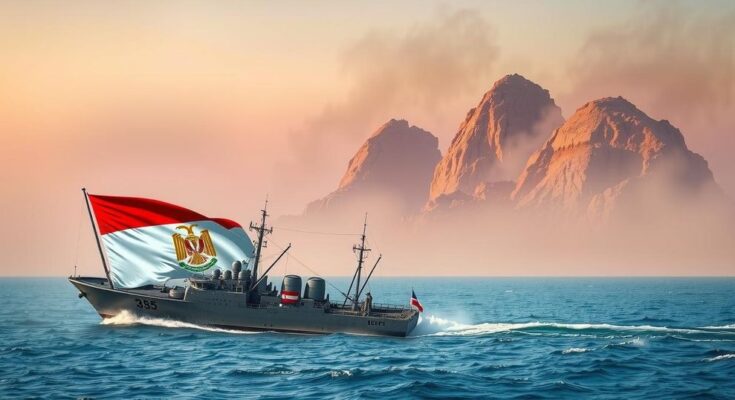Egypt has rejected the military presence of non-littoral states in the Red Sea, citing security concerns amidst heightened tensions with Ethiopia. Foreign Affairs Minister Badr Abdelatty expressed Egypt’s support for Somalia and outlined plans for trilateral cooperation with Eritrea. The ministers reaffirmed their commitment to regional stability and security, emphasizing the importance of protecting Somalia’s integrity against external threats.
Egypt has firmly opposed the establishment of military and naval facilities by non-littoral states in the Red Sea amidst rising tensions with Ethiopia. The Egyptian Foreign Affairs Minister, Badr Abdelatty, emphasized that the presence of landlocked nations in the region would significantly jeopardize maritime security. His comments were made during a joint press conference in Cairo with counterparts from Eritrea and Somalia, reflecting Egypt’s intention to assert its influence in the Horn of Africa.
In their statements, the three ministers highlighted their diplomatic cooperation and the scheduling of future meetings, with the next gathering set to occur in Mogadishu, Somalia. The leaders agreed on the pressing need to realize the goals set forth during the Asmara Summit, which took place in October. Abdelatty reinforced Egypt’s support for Somalia, emphasizing its commitment to preserve the nation’s integrity and stability as it combats terrorism and seeks to amplify state control.
Echoing Egypt’s strategic focus, he stated, “We reaffirm our commitment to Somalia’s stability, security, and territorial integrity, and we support the government in extending state control over its entire territory and combating terrorism.” This sentiment underscores Egypt’s longstanding ties with Somalia, especially in light of disputes involving Ethiopia and the autonomous region of Somaliland that have provoked regional tensions.
The article discusses Egypt’s recent rejection of foreign military presences in the Red Sea, a stance influenced by the ongoing tensions with Ethiopia. These tensions have heightened due to Ethiopia’s engagement with Somaliland, a self-declared independent region whose relations with Somalia are fraught. Egypt’s actions are framed within the broader context of its aspirations to enhance its influence in the Horn of Africa, thereby solidifying its role as a regional power. The trilateral diplomatic engagements with Somalia and Eritrea further reflect Egypt’s strategic aims to cooperate against common security concerns, particularly terrorism and territorial disputes.
In summary, Egypt’s outright refusal to permit non-littoral military presence in the Red Sea is a strategic move aimed at safeguarding its national interests and enhancing security in a volatile region. The cooperation with Somalia and Eritrea, along with a focus on joint meetings and summits, indicates Egypt’s commitment to maintaining stability in the Horn of Africa. Such actions underline the delicate balance of power in the region, particularly in response to Ethiopian activities, prompting Egypt to assert its sovereignty and influence more rigorously.
Original Source: www.garoweonline.com




